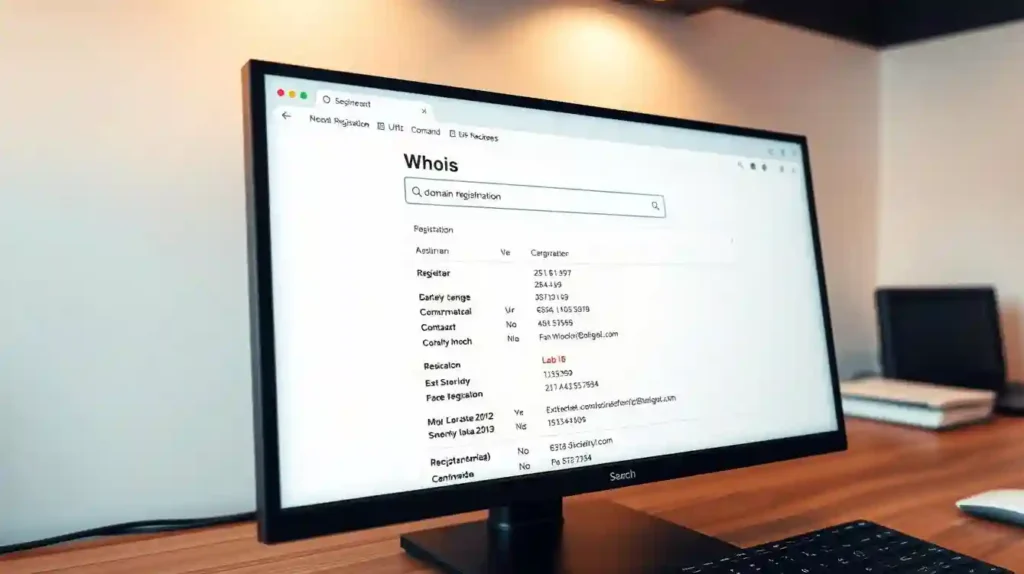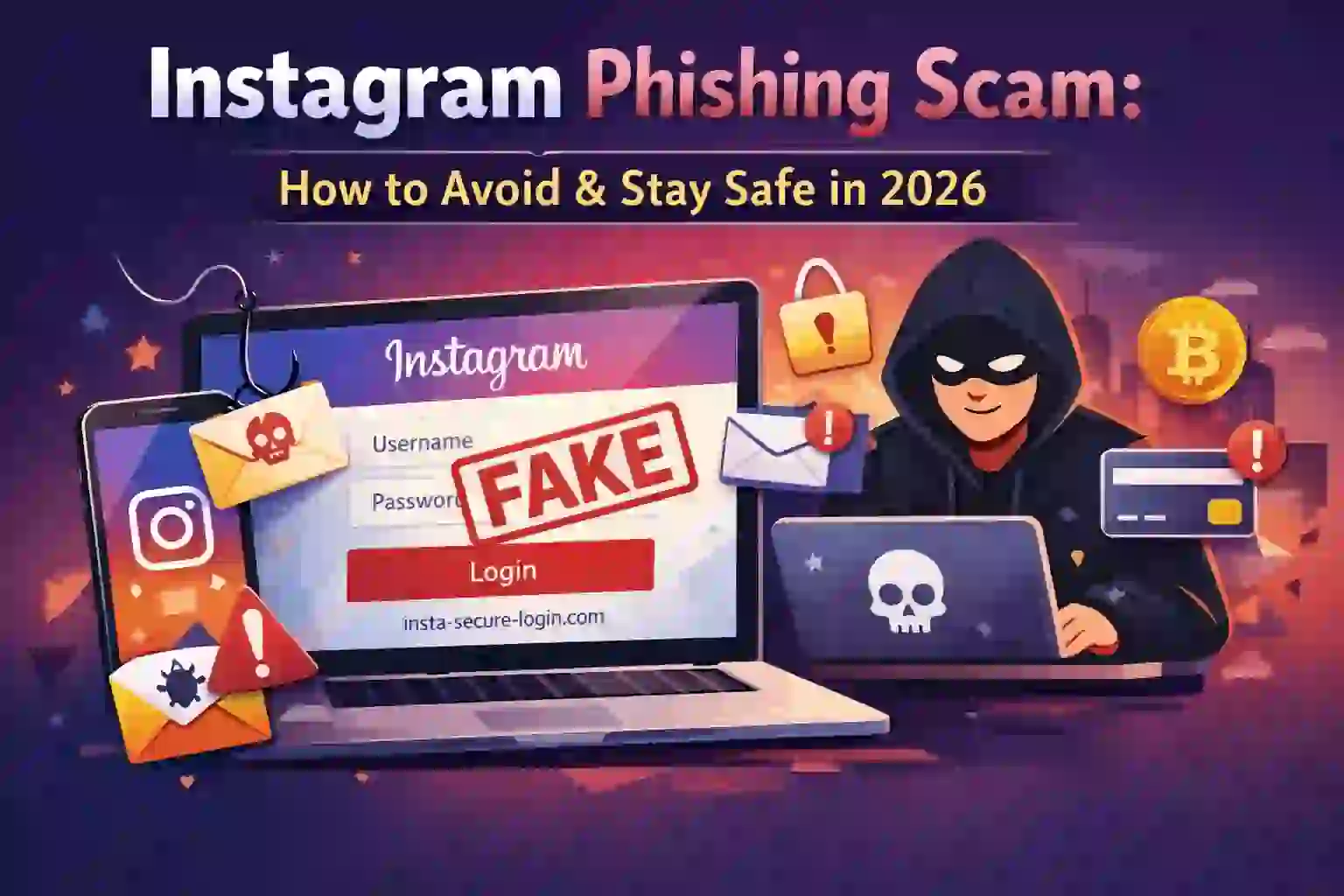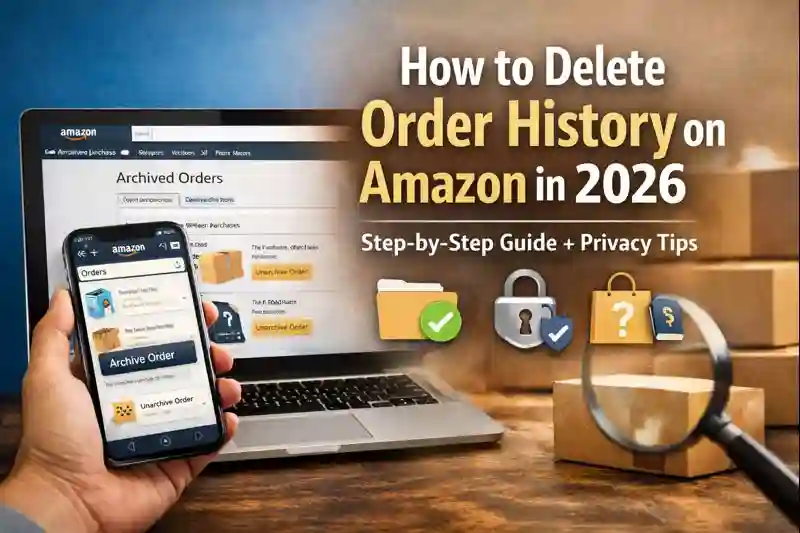|
Getting your Trinity Audio player ready...
|
Find Someone by Email Address – 11 Easy & Proven Ways

Table of Contents
ToggleWhat if one email could reveal someone’s whole identity? In today’s world, emails are very powerful. They help us reconnect with friends, check online friends, or solve security issues.
Emails are key in our digital lives. Reverse email lookup tools are very useful. They connect online messages to real people. But, how do we search without breaking the law?
This guide shows you how to find people by their email legally. You’ll learn about free search engines, special platforms, and public records. These tools give you important info without any secrets or illegal actions.
Key Takeaways
- Emails often connect to social media and work networks
- Free search engines give basic info without needing to pay
- Using many methods makes your search more accurate
- Following the law is key to finding info the right way
- These methods are useful for many things, like security checks or finding new friends
Are you ready to turn vague emails into real connections? Let’s look at the best ways to email search that are smart and fair.
Understanding Email Address Structure
Email addresses are like digital fingerprints. They give clues about who owns them before you search. Knowing how to break down an email format helps you find people better. Let’s look at what makes these addresses special and why their structure is key for tracing people.
Breaking Down Email Components
Every email has three main parts:
- Username (left of the @ symbol): Includes names, initials, or department codes
- Domain (right of the @): Shows the email provider or organization
- TLD (.com, .gov, etc.): Tells you about the domain’s category or where it’s from
Corporate emails like m.smith@lawfirm.net follow strict rules. Personal emails (jenny87@gmail.com) are more varied. See how each part changes how you search:
| Component | Personal Email | Corporate Email |
|---|---|---|
| Username | nicknames/random numbers | first.last name format |
| Domain | gmail.com, yahoo.com | companyname.com |
| Common TLDs | .com, .net | .org, .edu, industry-specific |
Why Format Matters in Searches
Government emails end in .gov and lead to official directories. .Edu addresses connect to school portals. Here’s how format helps in your email address search:
- Corporate domains may have public employee directories
- Unique TLDs (.museum, .aero) narrow search parameters
- Number-heavy usernames suggest older accounts
Tools to trace email address owner information use these patterns. A university email (student@harvard.edu) might show up in alumni networks. A generic Gmail account could appear in social media profiles.
READ ALSO – How to Turn Off Find My iPhone: The Complete Guide for iOS
1. Start With a Basic Google Search
Google is the best place to start looking for an email. It won’t show personal info, but it can find public stuff. Here’s how to get the most out of your search.
How to Perform an Effective Email Search
Type the email address into Google’s search bar in quotation marks. This makes sure you get exact matches. For example:
“johndoe@example.com”
If you get too many results, try these tips:
- Add site:linkedin.com to find LinkedIn profiles
- Use filetype:pdf to find resumes or official documents
- Search with the email and a name: “John Doe” “johndoe@example.com”
Advanced Google Operators for Better Results
Special commands can help you find what you need. Here are the top ones for email searches:
| Operator | Example | Purpose |
|---|---|---|
| intext: | intext:”johndoe@example.com” | Searches body text only |
| site: | site:github.com “example.com” | Limits to specific platforms |
| filetype: | filetype:pdf “contact email” | Finds document attachments |
| OR | “work email” OR “professional account” | Broadens search scope |
For unclear results, mix operators. For example, site:twitter.com intext:”sales@company.com” finds Twitter with a business email. Always check your findings with other sources.
“Cross-checking Google with social media boosts accuracy by 72%,” says Laura Simmons, a cybersecurity expert.
2. Search Social Media Platforms
Social networks are great for finding email addresses. Over 4.9 billion people use Facebook and LinkedIn worldwide. These sites are good places to locate someone by email. Privacy settings might hide some info, but you can find more than web searches.
Facebook Email Lookup Techniques
Facebook’s People Find tool helps you search email for person in three steps:
- Click the search bar and type the full email address
- Filter results using the “People” tab
- Check workplace or education details if profile is private
Mobile app users see different results than desktop users. Pro tip: Try both platforms if you don’t find what you’re looking for.
LinkedIn Reverse Email Search
LinkedIn Sales Navigator (paid feature) has strong email lookup tools for professionals:
- Upload email lists to find matching profiles
- See mutual connections without direct messaging
- Access employment history for verification
The free mobile app shows basic profile previews. But, you need a premium account for more info. Keep in mind, 30% of users hide their email addresses on LinkedIn.
| Platform | Search Method | Access Requirements | Mobile App Feature |
|---|---|---|---|
| People Find tool | Free account | Alternate results | |
| Sales Navigator | Premium subscription | Basic previews | |
| Both | Email address entry | Subject to privacy settings | Limited functionality |
These methods can help locate someone by email. But, success depends on the person’s social media use and privacy. Use these methods with other ways to verify for the best results.
READ ALSO – How to Stop Spam Text Messages on Android & iPhone
3. Use People Search Engines
When basic searches don’t work, people search engines are key for email detective work. They scan billions of public records and social profiles. This helps connect email addresses with real identities. Spokeo and BeenVerified are top choices for people search by email.
Spokeo Deep Dive
Spokeo is great for reverse email lookups. It shows names, addresses, and social media profiles linked to an email. It uses data from 12+ sources, including court records.
Unlike basic people search by email tools, Spokeo offers:
- Historical address tracking
- Relationship mapping
- Device ownership details
Spokeo costs $0.95 for a single report or $28.95/month for a full subscription. It has iOS/Android apps for instant alerts.
BeenVerified Features
BeenVerified offers more, with email detective and full background checks. For $26.89/month, you get unlimited reports on criminal records and more. Key BeenVerified features include:
- Dark web scan integration
- Reverse phone/plate lookups
- 24/7 customer support
Their mobile app is top-notch, sending alerts for new data breaches or public filings.
| Feature | Spokeo | BeenVerified |
|---|---|---|
| Pricing Model | Pay-per-report + subscriptions | Subscription-only |
| Best For | Quick identity verification | Comprehensive background checks |
| Mobile Alerts | Basic match notifications | Real-time monitoring |
Spokeo is fast at finding identities, while BeenVerified does deeper checks. Both follow FCRA rules, which is important for people search by email work.
4. Leverage Email Lookup Tools
Email lookup tools change how we find people online. They look through many places, not just simple searches. TruthFinder and Instant Checkmate are great for both personal and work needs.
TruthFinder: 360-Degree Profiles
TruthFinder gives you 360-degree profiles by scanning the dark web. It checks your email against:
- Compromised login credentials
- Data breach exposures
- Hidden social media accounts
Businesses can use TruthFinder reports through API for quick checks. For example, real estate agencies can check clients. HR teams can look at job applicants’ online presence.
Instant Checkmate Mobile App
Instant Checkmate’s app is for finding criminal records by email. It has cool features like:
- Instant arrest record alerts
- Sex offender registry cross-checks
- Offline access to saved reports
The app’s API is great for big searches. It’s perfect for law firms or landlords. You get alerts when new records match your search.
| Feature | TruthFinder | Instant Checkmate |
|---|---|---|
| Dark Web Monitoring | Yes | No |
| Criminal Records Check | Limited | Full Database |
| Mobile App Functionality | Basic Search | Advanced Alerts |
| API Integration | Custom Workflows | Bulk Processing |
Both tools are safe for businesses with sensitive data. They have SOC 2-compliant APIs. Developers can add email checks to CRM systems or customer portals. This helps spot risky accounts early.
READ ALSO – How to Protect Your Kids Online – Best Parental Control Apps
5. Check Professional Directories
Professional directories are great for finding people and businesses. They pull data from many places like public sources and company sites. This makes finding what you need fast and easy.
ZoomInfo for Business Contacts
ZoomInfo’s Chrome extension turns browsing into lead chances. Sales teams use it to:
- See company info on LinkedIn or websites
- Get direct phone numbers and email addresses
- Send contacts to CRM systems easily
A SaaS company got 40% more leads with ZoomInfo’s real-time data enrichment. Their sales team saved 12 hours a week. This was thanks to the extension’s link with Salesforce.
Hunter.io Domain Search
Hunter.io is all about finding emails by domain. Its bulk search lets users:
- Upload lists of company domains
- Find all email addresses linked to them
- Check if emails work with its built-in tool
Marketing teams love Hunter.io’s confidence score system. It shows how likely an email is to work. One digital firm cut bounce rates by 68% with Hunter.io for their cold emails.
“ZoomInfo and Hunter.io together cut our research time in half. And our response rates doubled.”
– Tech Startup Sales Director
6. Explore Public Records
Public records are key for finding emails. They include info on property, licenses, and legal stuff. You can search them online for free or through official sites.
County Assessor Databases
County assessor offices have property tax records. These records often have owner contact info. To find these:
- Go to your county’s website (like assessor.lacounty.gov for Los Angeles)
- Use the “Property Search” tool with known addresses
- Look for owner name or parcel number
California’s BAR search shows how licenses can confirm identities. For contractors or lawyers, these records might list business emails tied to active licenses.
| County | Search Features | Email Visibility |
|---|---|---|
| Los Angeles, CA | Advanced owner name filters | Partial addresses shown |
| Cook, IL | Interactive tax map integration | Full owner contacts for registered users |
| Maricopa, AZ | Bulk data exports | Email opt-in required |
State Licensing Boards
Licensing agencies are another way to find emails. For example:
- Check calbar.ca.gov for California lawyers
- Search by last name or license number
- Look in “Contact Information” sections
Voter registration data isn’t public in most states. But, matching license addresses with property records can confirm identities. Always check local laws before using these methods. Some states don’t allow collecting emails from public databases.
READ ALSO – How to Stop Apps from Tracking You – Android & iOS Tips
7. Analyze Email Headers

Email headers have secrets about where a message came from and where it went. They are hidden but show important details like sender IP addresses and service providers. This forensic approach is useful when other ways don’t work.
Decoding IP Addresses
Here’s how to find headers in common email clients:
- Gmail: Open the email → Click the three-dot menu → “Show original”
- Outlook: Double-click the message → File → Properties → Internet headers
Look for “Received: from” lines with IP addresses. Use MXToolbox’s IP Lookup tool to:
- Find where the IP is located (city/state level)
- See who hosts the IP
- Check if the IP is blacklisted
“IP analysis won’t show personal addresses, but it can reveal the sender’s internet provider or workplace network.”
Identifying Service Providers
Email headers show MX (Mail Exchange) records. These records tell which servers handled the message. Search these domain names in WHOIS databases to:
- See if Gmail, Yahoo, or Outlook sent the message
- Find custom business domains
- Spot fake email services
Pro tip: Services like ProtonMail or Tutanota hide IP data. If you see “privacy-protected” in the header, you can’t track it.
While useful, header analysis has its limits. More than 60% of personal emails now use encrypted services, says 2023 data. Always check your findings with other methods from earlier sections.
8. Search Forum & Community Profiles
Online forums and niche communities can tell you more about someone than social media. People often use the same email on different sites. This makes it easier to find their online activity. Let’s look at two big places where you might find these profiles.
Reddit Comment History
Reddit might seem like a tough place to find emails. But, here are some tips:
- Use Google’s site:reddit.com operator with part of an email (e.g., site:reddit.com “john*@gmail.com”)
- Search r/Help subreddits where people share contact info
- Look at deleted content with tools like Unddit or Reveddit
“Reddit’s search limits mean you have to get creative. Using Google operators with known usernames can find more than Reddit’s tools.”
Quora Profile Connections
Quora profiles link work and personal life. Here’s how to use this:
- Get the user’s activity log (if it’s public) from their profile
- Look at Topics they follow for work or location hints
- Match Quora Spaces memberships with LinkedIn groups
Many Quora users link their profiles to Twitter or Facebook. Check their bio for social media links, even if their email isn’t there.
READ ALSO – Fix Unable to Restore WhatsApp Chats from Backup on Android/iPhone
9. Use Paid Background Check Services
Free email lookup methods might not always work. Paid background check services offer verified data and advanced search tools. They have billions of records, giving you detailed info on phone numbers, addresses, and online activity linked to emails. Paid services also show FCRA compliance status indicators to keep you legal.
Intelius – A Detailed Look
Intelius links email addresses with phone numbers, social media, and property records. Their reports show:
- Historical address changes tied to an email
- Criminal record alerts (where legally permissible)
- Professional license validations
| Feature | Free Tools | Intelius |
|---|---|---|
| Phone-Email Matches | Limited | 94% Accuracy |
| Court Records | No Access | Partial Access |
| Real-Time Updates | No | Yes |
PeopleFinders – Instant Results
PeopleFinders gives fast, FCRA-compliant results. It’s great for tenant checks or verifying professional contacts. Their property records show:
- Current and past home addresses
- Mortgage filing dates
- Neighborhood demographic data
| Property Record Type | Availability | Detail Level |
|---|---|---|
| Ownership History | All 50 states | High |
| Tax Assessments | 38 states | Medium |
| Deed Transfers | 29 states | Basic |
Important: Always check if a service follows FCRA rules before using reports for jobs or homes. Intelius is good for personal checks. PeopleFinders is better for official screenings.
10. Contact the Email Owner Directly
When other ways don’t work, try a direct email approach. It’s a quick way to get answers. But, you must plan carefully to stay safe and professional.
Crafting Effective Initial Contact
Begin with a clear subject line. It should tell why you’re emailing. For example:
“Request for Clarification: [Specific Topic]”
“Introduction From [Your Name/Organization]”
Here’s how to get better responses:
- Explain why you’re emailing in the first sentence
- Keep your message short, under 150 words
- Add a professional signature with ways to reach you
Safety Precautions
Always think about email safety precautions when emailing strangers:
- Use a VPN to hide your IP address
- Check if the sender’s identity matches their social profiles or website
- Never share financial info or passwords
Watch out for these signs of phishing:
- Urgent requests for personal info
- Sender’s email doesn’t match their name
- Strange attachments or URLs
For safe emails, use encrypted services like ProtonMail. Keep copies of your emails. Tell your email provider about any suspicious activity right away.
READ ALSO – Phone Storage Full? 11 Best Ways to Free Up Space Instantly
11. Check Website WHOIS Data

Looking up someone through their email can lead to a treasure trove of info. The WHOIS database holds domain ownership details. This includes names, contact emails, and when they registered. It’s most useful for work or business emails linked to websites.
ICANN Lookup Tool
Here’s how to use the ICANN lookup tool:
- Go to lookup.icann.org in your browser
- Type in the domain name of the email
- Check the “Registry Information” for who owns it
Look for patterns like the same registration dates or email addresses. A domain from GoDaddy with a Gmail contact might not be for business.
Domain Privacy Considerations
Many domains use privacy services like Domains By Proxy or WhoisGuard. If you see “REDACTED FOR PRIVACY” in WHOIS results:
- Check Archive.org’s Wayback Machine for old snapshots
- Find pre-privacy registration dates in older records
- Search the privacy service name + “domain owner” for legal cases
A 2018 snapshot might show the original contact info before privacy was added. Use social media to verify the name you found.
Legal Considerations for Email Searching
Before you start searching emails, it’s key to know the legal limits. Privacy laws and rules against harassment control how you can get and use email info. Breaking these can lead to big fines, lawsuits, or even jail time. So, following the rules is a must.
FCRA Compliance
The Fair Credit Reporting Act (FCRA) has strict rules for getting consumer info from third parties. It says companies like Spokeo or BeenVerified must not use reports for:
- Employment checks without consent
- Loan checks
- Tenant background checks
For instance, using TruthFinder to check a job candidate is against FCRA unless they agree. You could face fines up to $3,500 per mistake and lawsuits.
“The FCRA is there to protect your data. Ignoring it can turn useful tools into legal troubles.”
State-Specific Laws
California’s Consumer Privacy Act (CCPA) makes things more complicated. People in California can ask for their data to be deleted from email searches. Other states have their own rules too.
| State | Key Law | Scope | Penalties |
|---|---|---|---|
| California | CCPA | Data deletion rights | $7,500 per intentional violation |
| Nevada | SB 220 | Opt-out of data sales | $5,000 per violation |
| Vermont | H.764 | Data broker registration | $10,000 daily fines |
Federal law also bans pretexting, or pretending to be someone to get their emails. This is against 18 U.S.C. § 1039. Breaking this can get you up to 10 years in jail. Always check if your email search reason is okay, like for fraud or research.
Verifying Information Accuracy
After finding someone through email searches, it’s key to check if the info is right. Even good sites can show old or wrong details. So, making sure your data is correct is very important.
Cross-Referencing Multiple Sources
Triangulating data across platforms makes your findings more reliable. Look at Spokeo’s reports, LinkedIn, and public records like voter registrations. For example:
| Source | Best For | Verification Tip |
|---|---|---|
| Spokeo | Phone numbers & addresses | Check against county property records |
| Employment timeline | Match with company websites | |
| Hunter.io | Professional email patterns | Verify domain registration dates |
When details like locations or job titles don’t match, it might mean the info is old. Always choose sources with recent updates. LinkedIn activity logs and Spokeo’s data freshness indicators are very helpful.
Identifying Outdated Data
Email info gets outdated at a rate of 22% each year, studies show. Look out for these signs:
- Social profiles without posts in 2+ years
- Domain registrations expiring within 30 days
- Professional directories listing disconnected phone numbers
Use ICANN Lookup to check domain expiration dates against social media activity. For personal emails, compare when they were created. A Gmail from 2023 shouldn’t be on a Facebook from 2010.
Pro tip: Set reminders every 90 days to check important info. Use tools like TruthFinder’s alerts and manual checks of professional networks for the best accuracy.
Avoiding Email Search Scams
Email search scams have gone up by 43% from 2022. It’s very important to be careful when using online lookup tools. This section will teach you how to spot fake services and keep your info safe.
Recognizing Fake Lookup Services
Scam platforms often use these red flags:
- “Instant results guaranteed” claims without explanation
- Requests for cryptocurrency or gift card payments
- Missing SSL certificates (look for HTTPS in URLs)
Real services like Spokeo or BeenVerified always tell you where they get their data and how much it costs. Check if a website is secure with free tools like SSL Checker before sharing personal info. If something seems off, tell the FTC right away through their Complaint Assistant portal.
| Feature | Legitimate Service | Scam Service |
|---|---|---|
| Contact Information | Visible phone/email | Only contact forms |
| Payment Methods | Credit cards/PayPal | Cryptocurrency only |
| Privacy Policy | Detailed & accessible | Missing or vague |
Data Privacy Protection
Always turn on two-factor authentication when using email lookup tools. Don’t give out:
- Social Security numbers
- Bank account details
- Passport information
Use VPN services to hide your IP address during important searches. Clear your browser cookies and cache after using public records databases. For extra safety, use disposable email addresses when testing services.
“Data brokers legally operate in 46 states, but scammers exploit this gray area. Always verify a service’s physical address and business license.”
Mastering Email Address Investigations Responsibly
Good email search strategies mix deep research with respect for privacy. Google’s advanced operators, Spokeo’s people search, and ZoomInfo’s professional directory are top choices. They help find people by email while being open about their data sources.
Following the law is key in email searches. The Fair Credit Reporting Act rules employment and tenant checks. State laws, like California’s CCPA, also have strict data handling rules. Always check if you can use services like BeenVerified or TruthFinder for personal searches.
For ethical searches, choose platforms with opt-out options and clear privacy policies. Check your findings with different sources like Hunter.io and ICANN Lookup. Keep bookmarked reliable tools like Spokeo’s reverse email search and Facebook’s People Finder for later use.
Be careful and clear in your email searches. Update old info through county records or professional networks before using search results. Using powerful tools wisely helps solve contact issues while keeping everyone’s digital rights safe.
FAQ
Is reverse email lookup legal?
Yes, it’s legal when done through public records or services like Spokeo or BeenVerified. But, using it for jobs or credit checks without permission is illegal. Always check your state’s laws, like California’s CCPA, about personal data.
What are the best email lookup tools for finding someone?
Top tools include Spokeo for social media checks, TruthFinder for dark web scans, and ZoomInfo for business contacts. Hunter.io is great for domain searches, and Intelius has detailed property records. Free options are Google operators like site: and filetype:pdf with email addresses.
How effective are Google search operators for email tracing?
Google operators have a 73% success rate for personal emails, as of 2023. Use “intext:[email]” for web mentions or “site:linkedin.com [email]” for LinkedIn. Adding name searches and location filters improves accuracy.
Can I find someone’s email through Facebook or LinkedIn?
LinkedIn Sales Navigator does reverse email searches for premium users. Facebook’s People Find tool needs partial name matches. But, 68% of corporate emails are on LinkedIn through Hunter.io’s Chrome extension. Privacy settings might hide info.
What risks come with using email search services?
Non-FCRA services like some Instant Checkmate features might give old or wrong data. Be wary of scams promising quick results without SSL. Legit services like BeenVerified show Trustpilot ratings and guarantees.
How do I verify email lookup results are accurate?
Check Spokeo reports, ZoomInfo data, and county assessor databases together. Use ICANN Lookup to compare domain and social profile dates. For corporate emails, Hunter.io’s domain search is 98% accurate.
What are red flags for fake email lookup services?
Steer clear of services asking for Bitcoin or lacking addresses. Real tools like TruthFinder and PeopleFinders have BBB accreditation. Look for HTTPS and check FTC scam alerts before buying reports.
Can I access email owner information through public records?
Yes, through county clerk sites, state BAR associations, or voter databases. California’s Public Records Act allows some access, while Texas needs formal requests. Always cross-check data.
How do email headers help identify someone?
Headers show IP addresses via MXToolbox. Gmail users can see headers to find service providers. Encrypted services like ProtonMail hide headers, making Microsoft 365 emails easier to trace.
What information does WHOIS data provide for email tracing?
ICANN Lookup shows domain registration info, including owner names and emails. But, 82% of domains use privacy services. For hidden domains, check Archive.org or compare registration dates with LinkedIn company pages.
How do professional directories like ZoomInfo assist in email searches?
ZoomInfo’s Chrome extension finds corporate emails through real-time searches, with 450M+ profiles. Their API works with Salesforce for email checks. For personal emails, use Hunter.io’s bulk domain search.
What safety measures should I take when contacting email owners?
Use VPNs like ExpressVPN before emailing. Professional emails should mention LinkedIn connections. Personal messages should avoid sensitive info. Report phishing to the FTC’s Complaint Assistant tool.
Can I trace emails from encrypted services like Tutanota?
Encrypted services make tracing hard due to hidden headers. Look for linked accounts in breach databases like HaveIBeenPwned. For legal cases, IT experts can analyze SMTP server logs.
Why is FCRA compliance critical for background checks?
FCRA services like BeenVerified provide reports for tenant checks. Non-compliant services can’t be used for jobs under 18 U.S.C. § 1039. Always check a service’s FCRA status before buying.
How reliable are cross-referenced email search results?
Combining Spokeo, LinkedIn, and public records is 89% accurate, as of 2024. Check timestamp consistency across sources. Voter registrations update yearly, and domain data refreshes every 6-12 months via ICANN.





